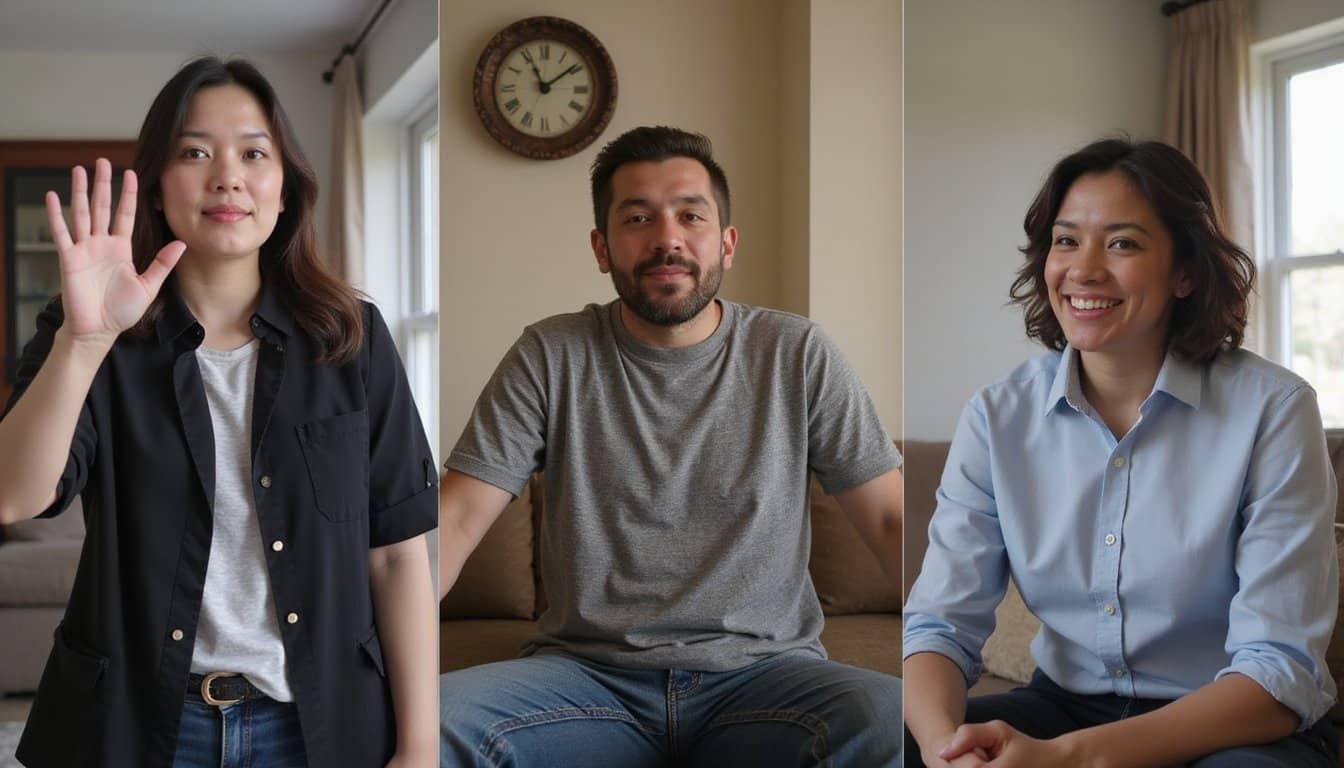The Connection Between Depression and Headaches
Depression is one of the most common mental health disorders in the world today. According to the World Health Organization (WHO), 3.8% of all people suffer from depression with around 5% of patients being adults. Depression presents a variety of signs that include both physical and emotional symptoms. Though you might not connect the ongoing pain in your head, there is a link between depression and headaches. The biggest issue is that it’s hard to determine if your depression causes the pain or if you have the pain because of your depression.
Signs of Depression
Though a headache isn’t a common sign of depression your doctor will ask about, it’s just one of the many symptoms you might experience. Many people who struggle with depression have less interest in their favorite hobbies and activities. They often have difficulty sleeping, which includes dealing with insomnia and an inability to sleep or sleeping more than they did before. Other signs of depression you may exhibit include:
- Irritable thoughts and feelings
- Extended feelings of depression
- Fatigue and/or energy loss
- Suicidal thoughts
- Feeling sad or worthless
Physical Pain
If you suffer from physical pain along with depression, you’re not the only one. A study published by the NIH tracked nearly 50 female college students. It found that women who suffered from depression were more likely to experience headaches. The study asked each participant questions about her thoughts and feelings to identify those who exhibited signs of depression and then compared those results to the control group. Participants who showed more signs of depression and exhibited symptoms longer suffered from more headaches.
Headaches are just one of the physical symptoms that people with depression have. They can also be present alongside other physical symptoms, such as joint or muscle pain. One issue that arises is when patients ignore their emotional symptoms and only talk to their doctors about their physical pain. The doctor will perform tests and look at the causes of the pain without considering the emotional signs. This causes some doctors to overlook depression or misdiagnose it as another condition. You should always be honest with your doctor about your symptoms. Don’t be afraid to ask for a referral to a mental health provider.
Types of Headaches
Not all headaches are the same. It’s possible for some patients to experience just one type and for others to deal with all types. The three types are tension headaches, migraines, and cluster headaches. Patients should talk to their doctors about possible medications to treat both their depression and their headaches. Headaches can go along with other mental health disorders, too, such as post-traumatic stress and bipolar disorder.
Tension Headaches
Though the link between depression and tension headaches is not known, the two do go together. A tension headache causes some type of pain in your head. It can make your head feel tight as if you’re wearing a hat that doesn’t fit, but it can also feel like pressure or someone applying pressure. Some refer to it as a rubber band sensation because it feels like a rubber band squeezing their head.
The problem is that many of the symptoms of a tension headache are the same symptoms of depression. It’s often difficult to tell whether your head hurts because of your depression or if your depression caused the headache. The shared symptoms include changes to your sleep patterns/habits, concentration issues, fatigue, and irritable thoughts. Stress and dehydration are some of the common causes, but alcohol abuse or use and dental problems can also cause tension headaches. If you suffer from depression and struggle with anxiety or stress, you may also struggle with tension headaches.
Migraines
Migraines can happen with or without auras. The aura refers to changes in your vision that occur before your headache. Many people become sensitive to the light around them or develop blurry vision. An aura usually lasts for up to 60 minutes before the pain in your head starts. A migraine without an aura is more common among those with depression, which means you may experience no symptoms before the pain begins.
A migraine can last for four hours and up to six hours. In more serious cases, it goes along with nausea, vomiting, physical pain, and sensitivity to light and/or sound. A common migraine cause among women is a lack of estrogen, but men can also suffer from migraines. If you suffer from regular migraines, the pain can lead to depression. However, it’s rare that depression will cause migraines.
Cluster Headaches
Cluster headaches are another condition that affects adults. It causes localized pain that only affects one side. You may feel pain around the back of your head or along the side and close to your ear. Though fewer than 1% of the general population suffers from cluster headaches, it more commonly affects men. Unlike other headaches that cause a throbbing sensation, cluster headaches have a stabbing or stinging sensation. Other symptoms can include redness of the face, a runny nose, drooping eyes, or changes to your pupils.
Though cluster headaches are usually shorter than migraines, they can range from 15 minutes to several hours. They can come on suddenly without warning and at any hour of the day. Some experience them more often at night. People who smoke or use alcohol are more likely to suffer from cluster headaches. As the condition is chronic and can come and go, it can make you feel depressed because you cannot cope with the pain.
Headache Causes
A study published in General Hospital Psychiatry found that 11% of people with anxiety or depression also experienced headaches, with cluster headaches and migraines reported the most often. This figure also included those diagnosed with bipolar disorder. If you are suffering from depression, you may experience primary or secondary headaches.
Migraines are a common type of primary headache. This type often occurs due to something in your lifestyle. You may experience one because you follow a poor diet, deal with a lot of stress at work, or abuse alcohol. A secondary headache presents as a symptom of another condition, such as a sinus headache that causes pain in your sinus passages. One can also appear when you have high blood pressure or a cold.
Though some medical professionals use the term depression headache, it can refer to depression that causes a headache or a headache that causes depression. According to the National Headache Foundation, in the 1960s, doctors listed headaches as a sign of a depressive reaction. Doctors at the time would look for other signs that went along with the pain like delayed speech, lack of concentration, and fatigue. This caused them to overlook symptoms they could not see with the naked eye, which would result in misdiagnosing patients.
The National Headache Foundation points out that physicians today need to look for physical, emotional, and mental symptoms. The organization notes that certain medical conditions can cause headaches that make the patient feel depressed. Doctors must rule out other conditions before diagnosing a patient with depression based just on their physical symptoms.
Research Into Headaches and Depression
While medical research about the link between headaches and depression is sparse, there is some evidence of a connection between the two. In 2018, two neurology researchers studied 70 people in Ethiopia who suffered from migraines. They found that 70% also suffered from depression and that more than 70% of those patients considered their headaches a disability that affected their lives. The results of the study caused the doctors they worked with to start screening incoming patients for anxiety and depression.
Another study occurred in 2014 in Korea. People between the ages of 16 and 69 answered questions and went through a detailed interview where they talked about their experiences. More than 5% of those surveyed reported they had a migraine within the last year. Of those participants, more than 11% had anxiety and depression, and another 6.1% suffered from depression. The study found that both old and young participants were more likely to experience migraines if they had depression.
A journal article from the NIH looked at the association between migraines and mental disorders. More than 80 participants took surveys to address their symptoms. This study found that people with depression and similar conditions were more likely to suffer from stress and experience frequent headaches. Patients struggling with anxiety were also prone to headaches.
What Causes Depression Headaches?
The main cause of depression headaches seems to be the pain itself. Depression is more common among those who suffer from chronic or frequent headaches. A chronic headache must last for a minimum of three months and happen for 15 days or more in each month. The pain makes it hard for you to handle daily or simple activities, such as your duties at work, cleaning the house, cooking dinner, or just taking care of yourself. Those major changes to your lifestyle can leave you feeling depressed.
Another issue is that depression can occur because of a hormone imbalance. Your body produces less dopamine and serotonin, which can make you feel tired and affect your sleep. A lack of sleep can wreak havoc on your emotional health and lead to depression or depression symptoms.
There are other causes of depression and headaches, too. These causes can lead to a headache and depression or cause depression that leads to headaches. Some of these causes include:
- Insomnia: Depression often affects your sleep patterns, making it difficult for you to get enough sleep. A study published in 2017 found that 50% of headaches sufferers also experienced insomnia, putting a link between head pain and depression.
- Medications: Certain medications increase your risk of headaches, including some antidepressants. You may want to talk with your doctor to ensure you choose the right prescription.
- Dehydration: The loss of appetite you experience as a result of depression makes it difficult for you to get the water and nutrients your body needs. Dehydration is one of the leading causes of headaches. If you don’t drink enough water or eat enough food, you can become dehydrated, which leads to a headache.
- Stress: One of the leading headache causes is stress, which can also lead to depression. Depression makes it difficult for you to handle stressful situations, too. There’s a chance that your stress at being unable to spend time with your loved ones or engage in your favorite activities can cause your headaches.
Treatment Options
It’s important that your doctor work to treat both your headaches and your depression. Medications are one possible option, especially monamine oxidase inhibitors (MAOI) and antidepressants. Cognitive behavioral therapy (CBT) can also help. This is a recommended treatment for people with depression, anxiety, or post-traumatic stress disorder who also suffer from headaches.
Some other treatments for depression that a doctor might recommend include:
- Talk therapy, such as psychotherapy
- ECT and other types of brain stimulation therapy
- Biofeedback
Choosing the right treatment can reduce your risk of struggling with depression in the future, too. The National Headache Foundation claims that physical pain prevents those with depression from entering remission. If the patient continues experiencing pain, you have a difficult time responding to treatment and may continue exhibiting symptoms of depression.
Treat Your Headaches and Depression
Depression is one of the more common mental health disorders facing people today. The Centers for Disease Control and Prevention (CDC) puts the total number of people suffering from depression at nearly 5% of adults in the U.S. alone. Your depression increases your chance of suffering from headaches, but experts are unsure of why this connection exists. Though some can develop depression as a result of chronic and frequent headaches, others have depression that presents with headaches as one of their symptoms. At the National Depression Hotline, we believe that everyone has the right to get the help they need.
Call today to find resources and support that will help you learn how to cope with and treat both your depression and headaches.






